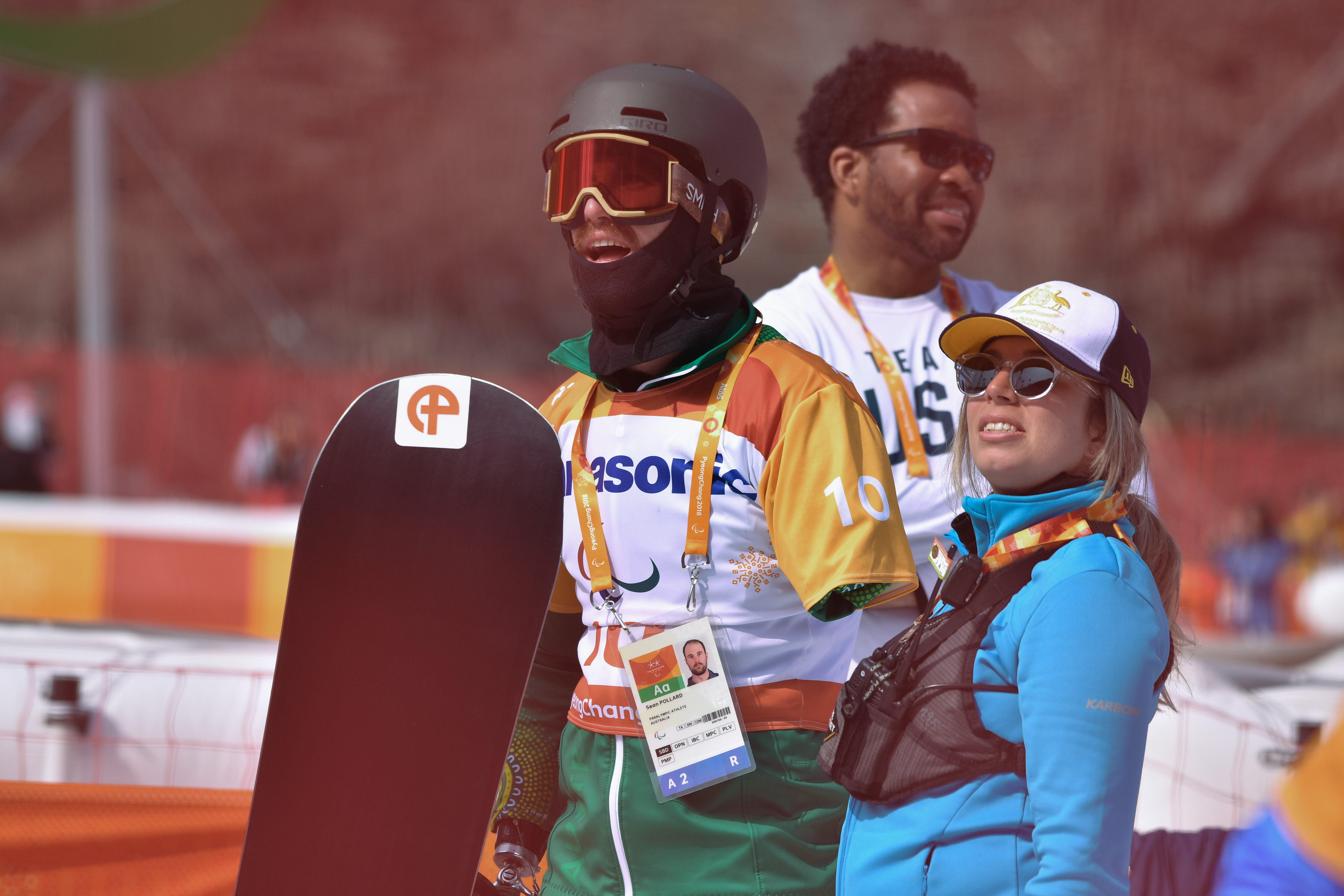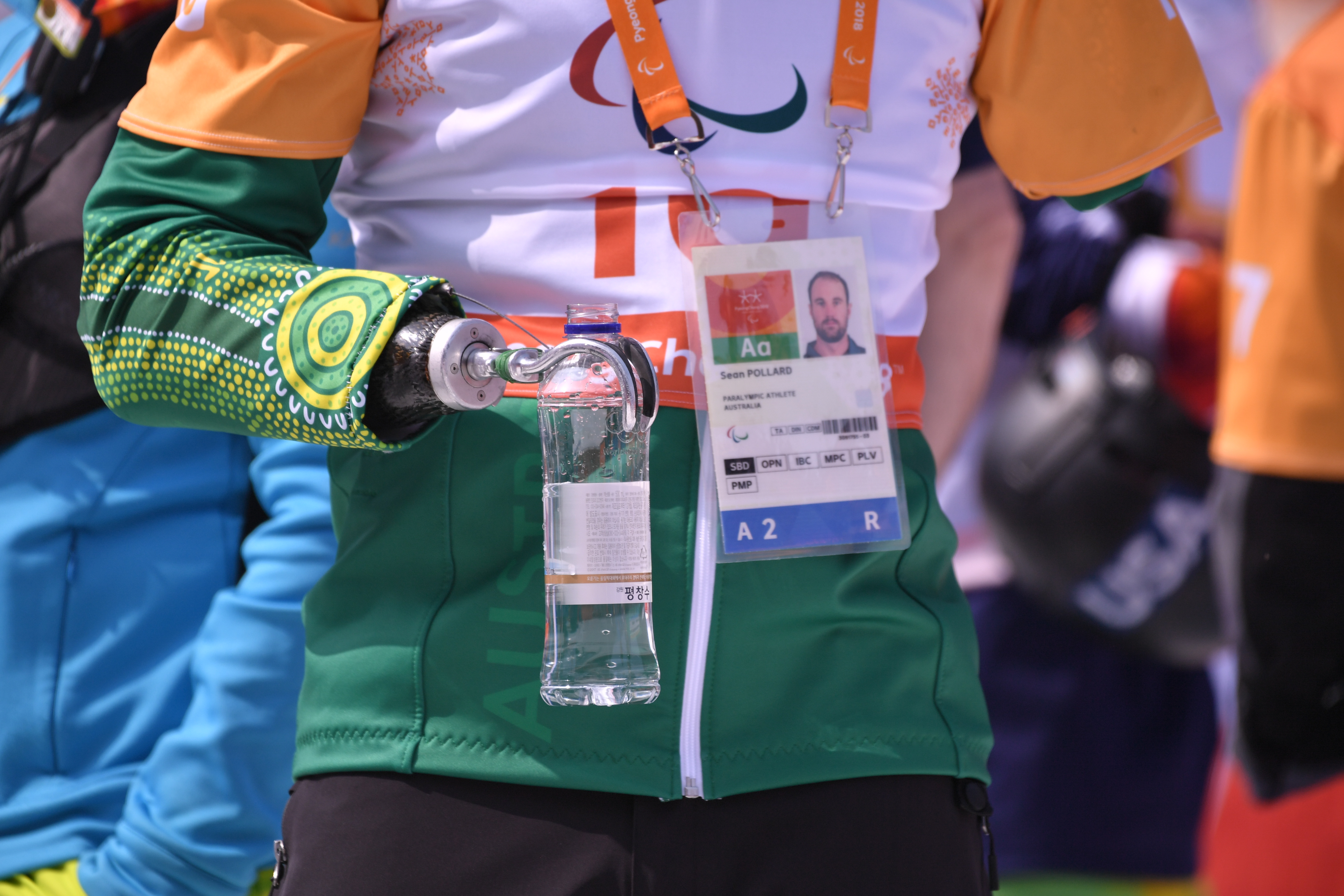‘Crazy journey’: From double shark attack to Paralympic snowboarder

Sean Pollard of Australia rests after his men’s snowboard Cross SB-UL qualification run at the Jeongseon Alpine Centre in Pyeongchang on March 12, 2018. / AFP PHOTO / Ed JONES
Sean Pollard was surfing in Australia in 2014 when he was attacked by two great white sharks, losing his left arm and right hand and only just escaping alive.
But far from wallowing in his misfortune, he threw himself into snowboarding — and just three years after taking up the sport, he made his Paralympic debut in Pyeongchang this week.
“It’s been a crazy journey,” said the 26-year-old.
“I am just really happy to get on the big stage, and try and show what I am capable of still doing now.”
Pollard made it through the early heats in the snowboard cross, narrowly missing out on the quarter-finals.
Even in a Winter Paralympics filled with hundreds of inspiring tales, from war veterans who lost limbs on the front line to cancer survivors, the Australian’s story stands out as remarkable.
“It’s been a fairly tough kind of ride the last few years,” he said.
“It took me six months before I could put socks on again.”

Sean Pollard of Australia rests after his men’s snowboard Cross SB-UL qualification run at the Jeongseon Alpine Centre in Pyeongchang on March 12, 2018. / AFP PHOTO / Ed JONES
But he picked himself up and got his first taste of para-snowboarding during a visit to a ski resort town in the Australian state of Victoria.
During a subsequent trip to Canada, he happened to meet the country’s Paralympic coach, which further fired his interest in the sport.
On his return home he contacted the Australian Paralympic Committee — and began in earnest the journey that would eventually bring him to Pyeongchang.
Since November he has been travelling widely on the para-snowboarding circuit in preparation for the Games, competing in the Netherlands, Finland, Canada and the United States.
As well as snowboard cross — which pits competitors in a series of heats and head-to-head races — Pollard is also competing in slalom.
‘You’ve got to keep trying’
There are numerous different categories in para-sports depending on athletes’ disability, and Pollard competes in the category for people with upper limb impairments.
With both hands missing, he is at a disadvantage even to other para-snowboarders.
Snowboarders typically begin their runs by pushing off the top with a hand — but Pollard has to place his board sideways and jump out, giving him a slower start than his rivals.
“It puts me to the back of the pack straight away, but that is the sport and I would not whinge about it at all,” he said.
He is not the first Paralympian to have suffered a shark attack. South African swimmer Achmat Hassiem lost part of his right leg when he was mauled by one of the creatures in 2006.
He earned the nickname “Shark Boy”, and competed in three Summer Paralympics, winning a bronze medal in London 2012.
But Hassiem does not hold a grudge against sharks.
He says he feels grateful to them as the attack gave him the chance to travel the world taking part in sports events — and he ended up becoming a marine conservationist focused on shark protection.
Another Paralympian to have lost a limb in an animal attack is Ukraine’s Vasyl Kovalchuk, whose right arm was torn off by a bear during a visit to a zoo when he was 11.
He won gold medals in air rifle shooting at the 2012 and 2016 Summer Paralympics.
Pollard has a message for anyone who finds themselves struggling to overcome such a trauma: just keep trying.
“I think the biggest thing for me was I was not afraid to fail,” he said.
“You’ve got to keep trying.”